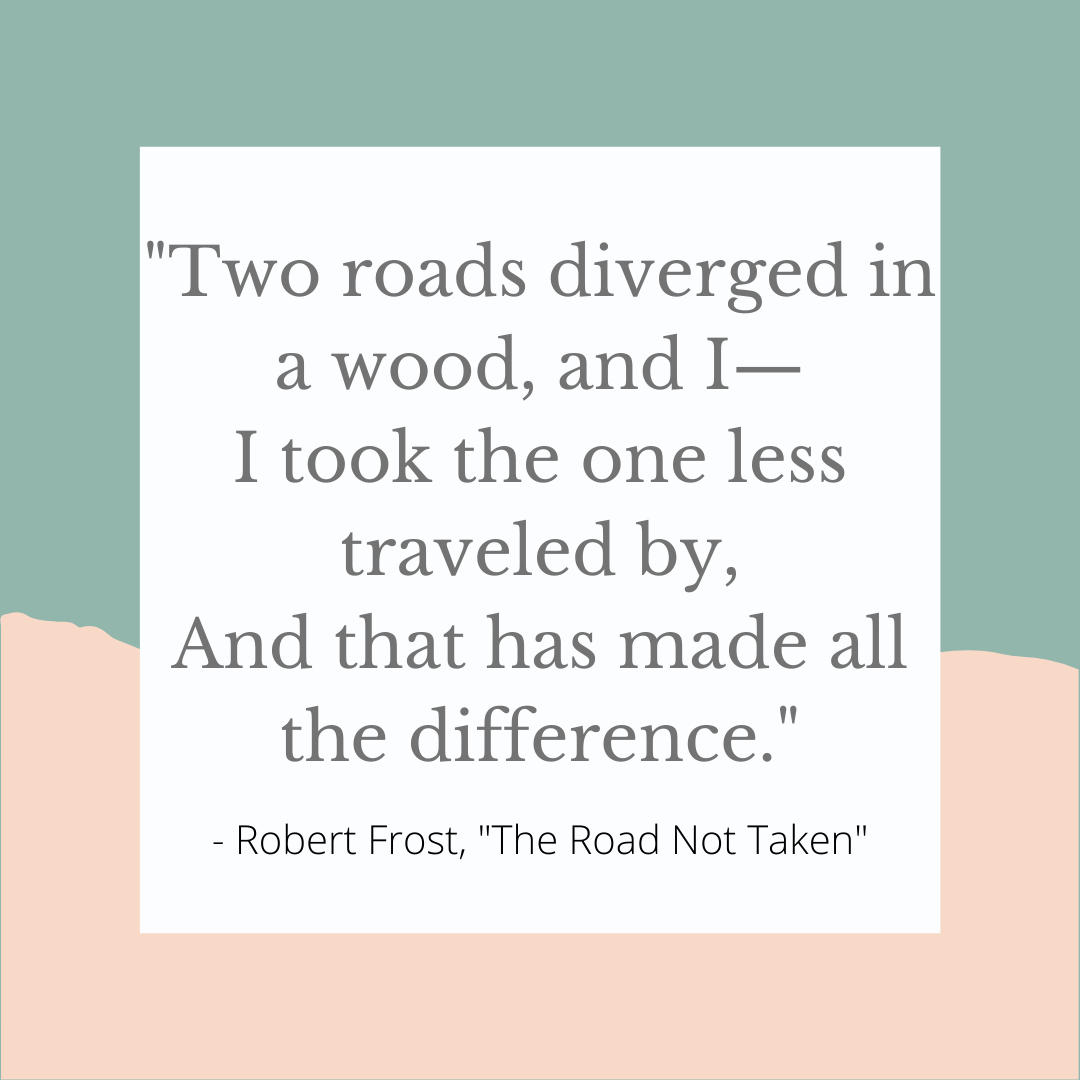Before and After... Back to Before
Reverse Transformations
Hello all,
I’m writing this week from the Midwest, bouncing around between Wisconsin and Minnesota (scheduled determined by a wedding… and the NBA finals, go Bucks!)

Admittedly, I do not know much about the Milwaukee Bucks, except that their star player, Giannis Antetokounmpo is very talented, comes from very humble beginnings in Greece, and appears to be an absolute gem of a human, so please enjoy this extra gif.
This week’s newsletter is about a concept I’ve heard referred to as “reverse transformations”. The concept (hashtag, really) was popular a few years ago on fitness Instagrams, that turned the typical “before” and “after” concept (i.e. losing a bunch of weight, or becoming super jacked) on its head.
The “reversal” movement came about with many posting about atypical fitness journeys (gaining weight, or changing their relationship with food or fitness with no aesthetic goal). I think there’s a career progression analogy here, which I’ll explore in the “Musings” section below. And in the “Conversations” section, will share some examples of people in my network that have explored atypical (at least what our mainstream might currently consider atypical) paths to success/satisfaction in their careers.
Musings
In the last few decades, startups have become incredibly sexy. The idea of visionary entrepreneurship, hypergrowth and making ones mark permeates all through our culture (career culture and more broadly). The democratization of technology and infinite data storage has certainly enabled a lot of people to become founders and entrepreneurs and develop incredible ideas. Somewhere along the way, working for a corporation (or, working for a small/medium sized business that grow at a moderate pace) has seemingly fallen out of favour for new grads and then the broader workforce as a whole. (Notwithstanding a lot of cultural/ethical issues many large corporations faced in the early aughts).
This universal sense of wanting to do something entrepreneurial, on one own terms seems far sexier than continuing to push in a corporation.
It’s not unlike the end state that mass media pushes on people to be fit, smaller, toned, strong. The reverse transformation concept (in fitness) shows people whose ‘before’ is smaller, and their ‘after’ may or may not show actual weight gain, but almost always includes a regaining of ones sanity, comfort and self-compassion after what, for many, is a grueling, strict regime to have gotten down to their smaller size.
There are countless examples of models, celebrities, beauty contestants that have opened up about their struggles to be a certain size to exist within societal standards of beauty, following strict, trendy diets (Keto! Intermittent fasting! Macro counting!)
The reverse transformation occurs as they ultimately feel completely set free once they chose their own meaning of health (physical and mental).

It made me think about how messaging in fitness (and in body expectations), mirrors some messaging or pressures in career pursuits. Again, this is an imperfect analogy (my favourite kind…). As you know, I like to compare career satisfaction to dating in some ways (see ‘Voltron theory of mentors/dating’)… similarly I also often liken career progression to fitness progression.
The progression of making the leap from corporate to startup, or going from a large company (typically associated with boring, stodgy norms) to an entrepreneurial hustle - I see it in social media all the time, I see it in the people in my network, I see it in the people I interview to hire, and I’ve certainly lived it.
Personally, I left a large investment bank to join a tiny startup (which no longer exists), without doing nearly enough diligence on the management team, largely because I was so focused on the hypothetical ‘sexy’ or exciting things that startups seemingly promised.
A mission driven organization
The ability to own something directly
Equity and potentially massive upside
The aura of saying I joined an early stage start up
I’ll be honest, I solved for a relaxed office space, dress code, snacks and exciting pitch deck (aka ALL THE WRONG THINGS TO SOLVE FOR), and left behind a secure role at a large investment bank.
In some ways, it felt like a fancy fitness progression. You lose some weight, people give you well-intentioned compliments that are superficial, but feel nice. You feel in some ways like you’re crushing it.
It wasn’t dissimilar to some of the feedback my former colleagues at the investment bank I left would give me about career progression, “That’s so cool, you can bring dogs into the office!” “Your stock will be worth so much!”… I cringe thinking about it now. 😕
But ‘behind the scenes’, I absolutely hated it. The startup was run by a leader who was mainly motivated by image and had no interest in product or operations. In fact, anytime I brought up rational arguments as to why something might not work, he accused me of “not buying into the company vision”. It was demoralizing, felt super inauthentic, and I was stressed keeping up appearances of loving my new career move.
This obviously isn’t true of all startups. Many startups are doing amazing things, and working for them is a unique and incredible experience that is deeply fulfilling and rewarding (monetarily too!).
My major learnings:
Just because the majority of society and mass media seems to be pushing for one kind of career success (or body type), doesn’t mean it necessarily leads to career satisfaction for all
Not everything needs to be executed in hyper growth mode, slow steady growth (or career trajectory) is much more sustainable
Does true happiness exist at a super small growth rate, or level of wealth created by a startup exit
After my own pivot experience, I’m not much more mindful that not every mainstream career ‘transformation’ ends up being great, and wanted to shed light on this concept of ‘reversing’ back into corporate.
For those of you who often feel like everyone around you is working in a super sexy, high growth opportunity, with unlimited potential - that’s not always true. You just probably read about it less frequently.
I posted this quote on my Instagram this week, from “The Road Not Taken” by Robert Frost, partially because the aesthetic of my account demands that I post quotes :), but also because I find this quote fascinating. It’s incredibly popular, often emblazoned on coffee mugs, and is the perfect summation of this cultural dynamic I’m describing, of “triumphant self assertion”… many interpret its meaning as they key to success is taking the entrepreneurial, uncharted path.
But certain academics posit that the poem is actually widely misunderstood. The wildly popular quote above is actually spliced together from the first and last lines of the poem… while the second verse actually reads:
“Then took the other, as just as fair,
And having perhaps the better claim,
Because it was grassy and wanted wear;
Though as for that the passing there
Had worn them really about the same”
Which suggests that the two paths - are effectively the same. There are many paths to get to where one wants to go, and it’s only at the end of the poem, in self-reflection (or self-validation, really), that Frost claims the path he chose made all the difference. The poem, then, isn’t necessarily about choosing the right path (all paths can be right), but the retroactive justification that making that choice determined a specific outcome.
Conversations
The theme for this week’s newsletter came to mind from a number of conversations I’ve had with people in my network recently. I’ve been so impressed meeting people that took different routes, or reversed their paths in some way and emerged so much wiser and seemingly happier! Some snippets below:
A designer who did very well in an agency for a number of years before breaking out and launching her own consulting business. She found her nature didn’t lend itself well to the business development side of running her own business. She grew her business slowly, but it was counter to her introvert nature to go out and constantly pitch for business. She ended up going in-house at a financial services company that had a built-in customer base and pipeline of business so that she could focus on the creative side.
“I’m sure there are people that would say I’m ‘selling out’ by joining a bank, but it offers a lot of stability and covers a lot of things that I don’t like to do. I hated prospecting for new business, and as my business grew, I found that business development was becoming most of my role, leaving me no time to actually do anything creative or operational.”
An engineer that had left a large consumer conglomerate to work for a high growth fitness startup. She struggled with the disorganization of the startup team and the unclear reporting lines. She’s considering offers to go back to the conglomerate she left, who now needs innovation leadership.
“From the outside I’m sure this job and company look amazing, and it certainly has its perks. But because it’s so high growth and ever expanding, I feel like my portfolio was always expanding with no commensurate increase in pay. I also feel at risk of being layered, or reorg-ed all the time.
This role I’m evaluating at my old company is a clear leadership role, and I get to work on a number of different projects.
Being hired back in (now with startup experience), actually gives me a leg up vs where I ever would have gotten to if I had stayed the whole time. Both options have their pros and cons, so I need to think through those.”
A friend and founder who was recently acquihired into a large tech company. She built a company from the ground up and likely plans to be a founder again, but in the interim, is thriving within a big company
“I’m almost as busy as I was with my own company, which I like a lot. I’m building a team and a product, but inside an existing company. Yes there’s more bureaucracy, but work stress is certainly less personal if that makes sense.
I have time to invest in my personal relationships, learn about the other parts of a large, well-run business, and if I want to start something else down the road, I’m very well equipped to.”
Resources/Links
An deep dive into the misinterpretation of Frost’s poem “The Most Misread Poem In America” (The Paris Review)
6 Reasons You Should Work for a Corporate instead of a Startup, I’m aware this is sponsored by a corporation, but there are nonetheless some interesting points here : corporations can invest in training/education/mobility, (TechCrunch)
Cool ladies doing cool things: Everyone’s talking about the wonderful Zaila Avant-Garde, the 14 year old who became the first Black American winner of the Scripps National Spelling Bee, but did you know this girl can BALL? She’s a Guinness World Record holder for dribbling… ok I am done with the sportsing content now) (NYTimes)



